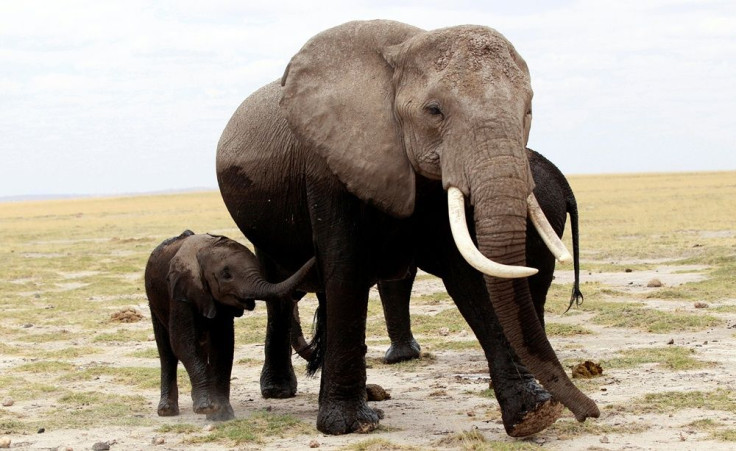Elephant Population In Mozambique Drops Down By Half Due To Poaching, Survey Finds

Elephants in Mozambique have lost their population by half over last five years due to illegal hunting for ivory, survey finds. The U.S. Wildlife Conservation Society, or WCS, conducted the Mozambique government-backed study and found that 48 percent of elephant population in the country has declined.
The recent survey findings come from the on-going observational study, the Great Elephant Census, which aims to list over 90 percent of elephants in 21 countries. The census, a project of Paul Allen, co-founder of Microsoft, has already recorded that there are “unsustainable rates of killing” of elephants across Africa.
“"The numbers from Mozambique are depressing," said WCS vice president, James Deutsch, in a report by The Huffington Post. Deutsch adds that the findings were shocking and while poaching is known to be rampant, the conservation group “didn’t know that it was so bad.”
The Daily Star Lebanon reports that poaching is heaviest in the Niassa National Reserve located in the remote north area near the country’s border with Tanzania, also an area of concern for many conservationists.
The aerial survey conducted on elephant population in Mozambique discovered that almost half of the elephants in the area were found already dead. The Guardian reports that Maputo, Mozambique has been inefficient in the fight against elephant poaching.
Due to pressure from international organisations, the country has adopted a new biodiversity law in June 2014 criminalising the hunting of protected wildlife. Before the adoption of the new laws, poachers in the area only faced fines for illegal possession of a weapon.
Ivory from elephant tusks are valued in Asia as they are made into statuettes and jewelry. In Africa, there is an estimate of up to 30,000 elephants killed illegally to support the ivory trade. An estimated 470,000 wild elephants roam in the region based on the count provided by not for profit organisation, Elephants Without Borders, according to The Guardian. The number drastically declined from several million elephants from 100 years before.
To report problems or leave feedback on this article, email: wendylemeric@gmail.com.






